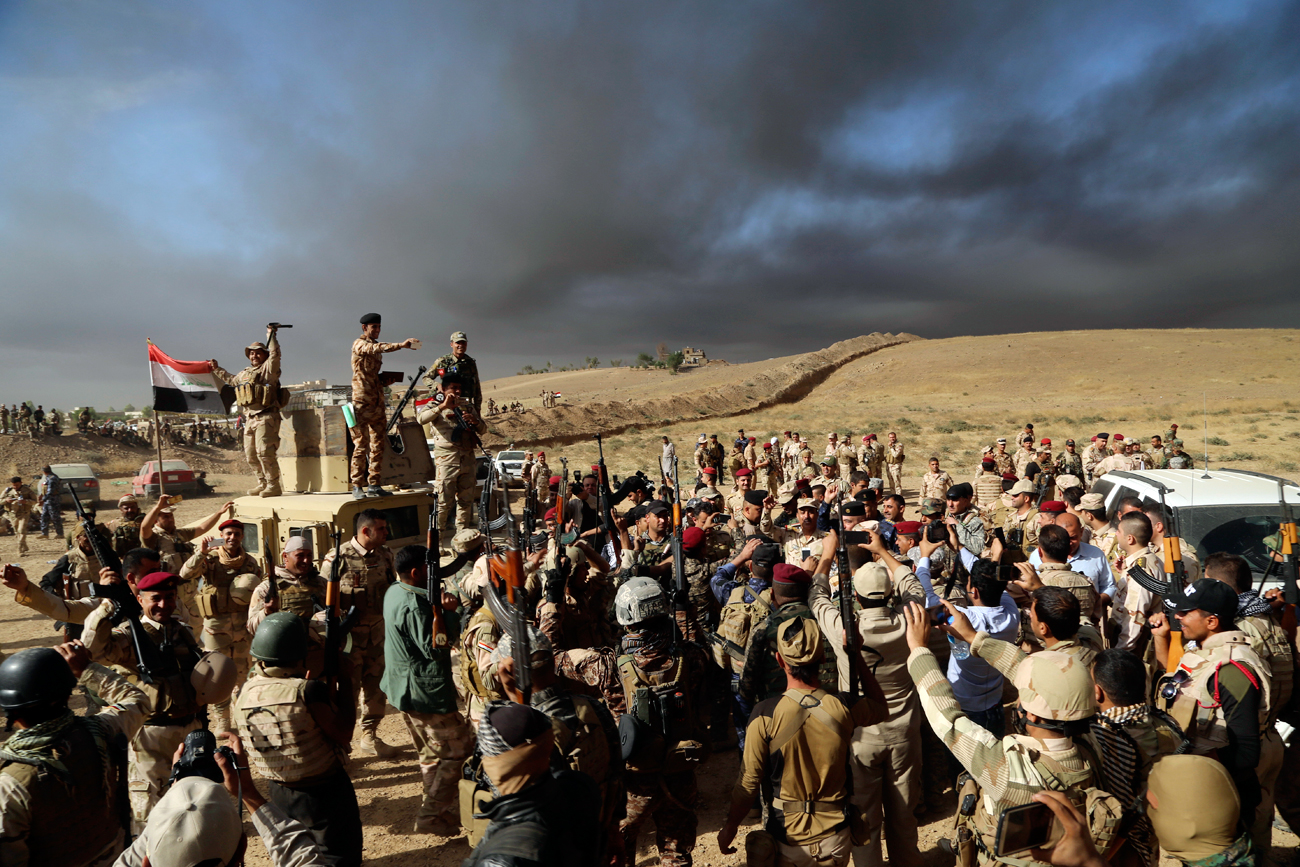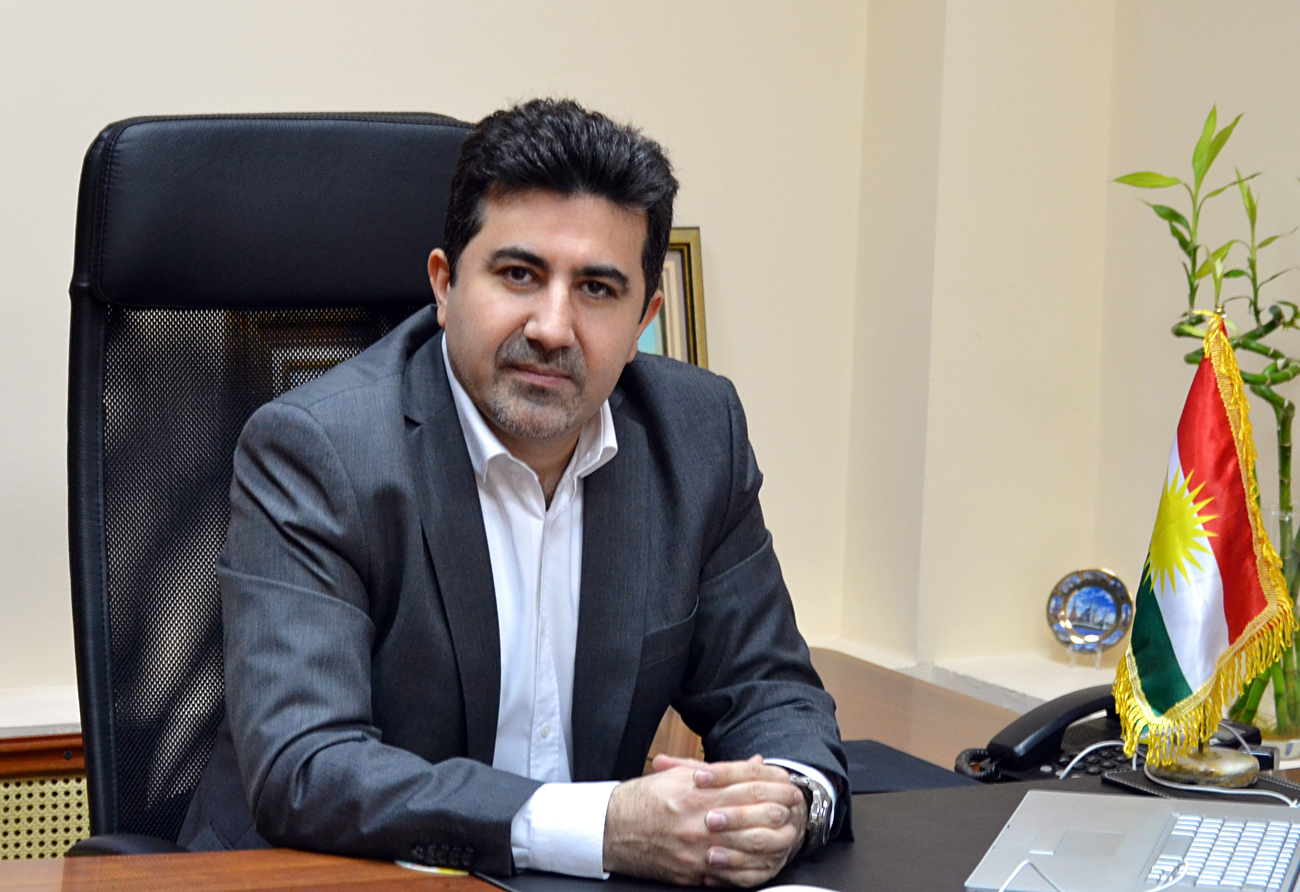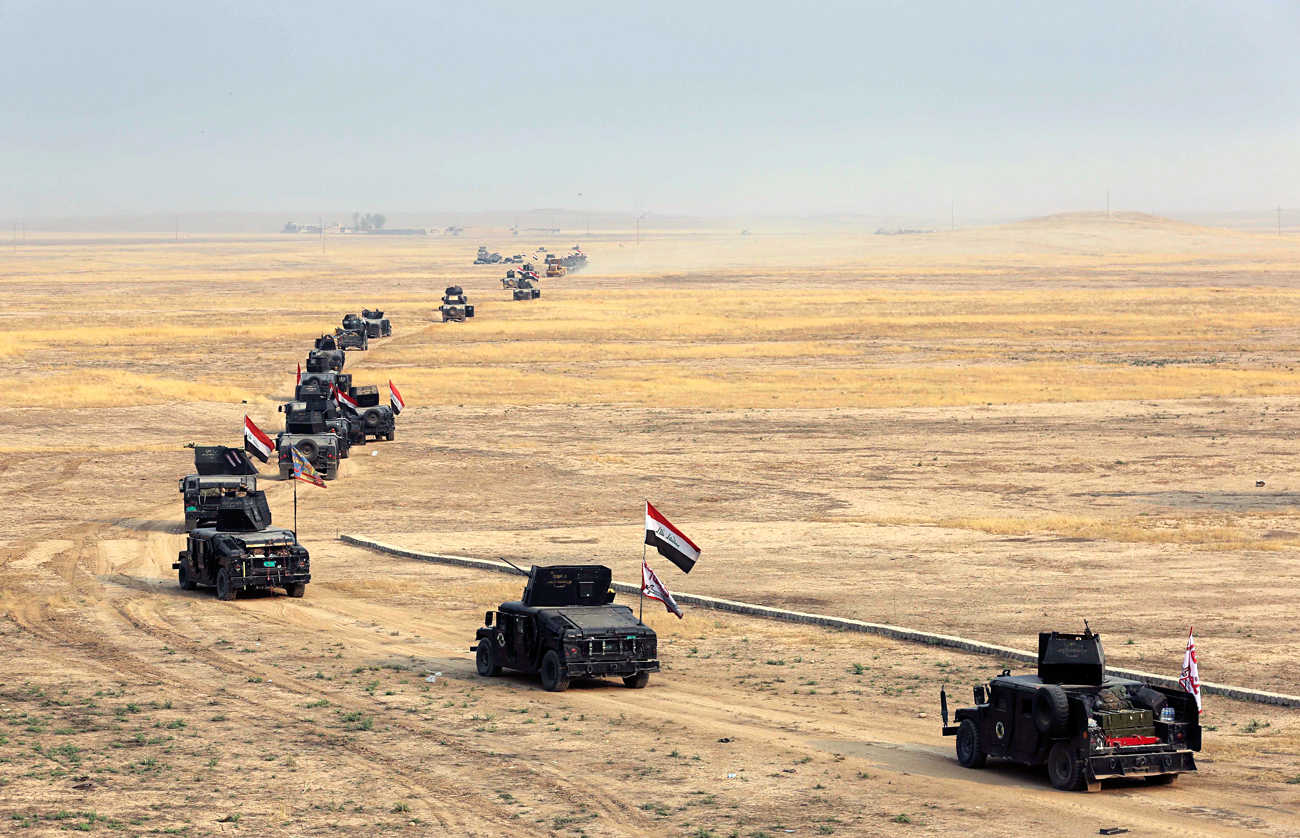
Iraqi army soldiers raise their weapons in celebration on the outskirts of Mosul, Iraq, Oct. 20, 2016.
APHow successful was the first week of the operation to recapture Mosul?
Dr. Aso Jangi Burhan Talabani: I can say that the beginning was quite successful. However, everything is happening very slowly. Things have been further exacerbated by the events in Kirkuk. On Thursday night, over 100 terrorists, including Chechens and natives of Uzbekistan, raided the city and captured several buildings there. Since Friday (Oct. 21), heavy fighting has been under way in Kirkuk, from where I have just returned. Some 70 people have been killed and over 200 wounded.
Although most of the militants have already been killed, the confrontation continues. According to our information, about 100 well-trained militants have arrived in Kirkuk from Mosul in order to divert the attention of the coalition and all the others who are involved in the operation to liberate the city.
Did the attack on Kirkuk catch the Peshmerga [Kurdish military forces] by surprise?
A.J.B.T.: It did. For the past two years, that city has been fully under Kurdish control and things were very quiet there. Nobody expected such a sudden attack.
 Dr. Aso Jangi Burhan Talabani / Source: Press Photo
Dr. Aso Jangi Burhan Talabani / Source: Press Photo
What else is slowing down the operation to liberate Mosul?
A.J.B.T.: There are many mined territories around, so the process will be very slow indeed. The mopping up of Mosul itself will take a long time too. Another problem is that ISIS enjoys considerable support among civilians. That area is mainly populated by Sunni Arabs, while the Iraqi government is dominated by Shia Arabs.
At one time, Saddam Hussein severely persecuted the Shia. Now many people in Mosul are worried that the Shia may take revenge on them, so ISIS is a sort of protection for them.
How many ISIS militants are there in Mosul today?
A.J.B.T.: About 4,000–5,000.
Is this a war of annihilation of all those who support ISIS? Or will there be talks with the militants?
A.J.B.T.: At one point, indeed, there was talk of setting up a corridor to allow militants to retreat. However, today this is no longer on the agenda. Because Baghdad and the U.S.-led coalition realize that if these militants end up in Syria, then sooner or later they will return to Iraq and start a war again.
Has the Peshmerga had experience of holding talks with ISIS militants?
A.J.B.T.: I have never heard that Iraqi Kurds have had talks with terrorists from that organization. It is impossible to negotiate with them. There is only one way out – to destroy them.
When, in the opinion of the Iraqi Kurdistan leadership, will the city be freed of militants?
A.J.B.T.: It is a question of several weeks. So far, everything is going according to plan.
Does the Peshmerga formally belong to the U.S.-led coalition or does it act as part of the Iraqi government troops?
A.J.B.T.: The Iraqi Kurds’ army acts as an independent player. There is an agreement between the Peshmerga and NATO and between the Peshmerga and the Iraqi government army. According to the agreed rules, the Kurds will operate only outside Mosul and will not be entering the city itself. That will be done by the police and the government troops.
However, the Iraqi army is yet far from the city; there are probably two more days before the attack. We, for our part, have liberated several villages, with just a little bit remaining to be done.
 Iraq's counterterrorism forces prepare to attack ISIS positions as fighting to retake the extremist-held city of Mosul enters its second week, in the village of Tob Zawa, outside Mosul, Oct. 24, 2016. / Source: AP
Iraq's counterterrorism forces prepare to attack ISIS positions as fighting to retake the extremist-held city of Mosul enters its second week, in the village of Tob Zawa, outside Mosul, Oct. 24, 2016. / Source: AP
How many Iraqi Kurds are taking part in the operation?
A.J.B.T.: Over 15,000. I think at least half of them should return to Kirkuk because for us it is more important to defend Kirkuk than Mosul. I would like to point out that there is not a single Iraqi or American soldier among the Peshmerga.
On Tuesday, Turkey announced that it too is taking part in liberating Mosul. What aims do you think Turkey is pursuing in Iraq?
A.J.B.T.: We have suspicions that Istanbul is helping certain militant groups. It is also very likely that the Turks want to attack Turkish and Syrian Kurds, whom they consider to be terrorists. We very much hope that the Americans and Baghdad will not allow them to take part. Turkey has a huge base outside Mosul, in Bashiqa, which has been operating for several months already. There are about 3,000 Turkish military personnel there.
What armaments do the Iraqi government army and the Kurdish forces currently have?
A.J.B.T.: The Iraqi army have always had Soviet military hardware, however, these days Baghdad is purchasing modern American equipment too. The list of Russian military hardware available to the government troops includes Sukhoi aircraft, Mi-28 and Mi-35 helicopters. Iraq has also purchased F-16 aircraft from the Americans. The Kurdish forces do not have aviation.
As regards ground vehicles, there are old Soviet tanks as well as many armored Hummers. Almost all of them have Russian and U.S. machine-guns mounted on them. Kurds are actively using Russian rocket-propelled grenades and Kalashnikov assault rifles.
Recently, the Baba Sheikh [the religious leader of the Yazidis, an ethnically Kurdish religious group in northern Iraq] appealed to the Kurdistan authorities to pay attention to the fate of captured Yazidis. Since 2014, ISIS terrorists have held captive thousands of women and children from the Yazidi city of Sinjar. What is happening to them now?
A.J.B.T.: At first, there were over 3,000 women there. Some of them have died, some have been freed by the Kurds, some women have been sold. But we know that there are many of them in Mosul still. They are being kept as prisoners. Unfortunately, we are unable to say how many of them are still alive. But there are definitely more than 1,000 of them.
Is there a chance that a deal could be struck with the militants to swap prisoners?
A.J.B.T.: Several attempts have been made but in the end none of them worked: We were cheated and the prisoners remained in captivity. But the Kurdish forces are constantly looking for ways to steal those women. For example, Yazidi activist Abu Shuja has managed to secure the release of some 300 people [Abu Shuja is a businessman from Iraqi Kurdistan who has set up a network of activists on the territory under ISIS control in Syria and Iraq who seek to free Yazidi women and children from slavery – Gazeta.ru].
First published in Russian by Gazeta.ru
All rights reserved by Rossiyskaya Gazeta.
Subscribe
to our newsletter!
Get the week's best stories straight to your inbox